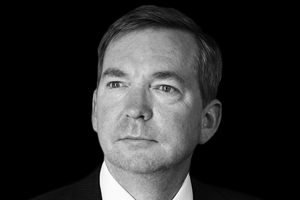Passive versus active: It needs no debateBY JOHN DYALL | THURSDAY, 10 AUG 2017 9:12AMHave we entered the post-truth world in discussing passive versus active investing? There has been a lot of talk recently about the rise of passive versus active in equities investing. Upgrade your subscription to access this article
Join the growing community of financial advisers
with unlimited access to our latest news, research and analysis of the industry.
Become a premium subscriber today. |
Latest News
ASIC releases new relief for reportable situations regime
ASIC has provided AFSLs new reliefs to help them manage the reportable situations regime, which includes extending the length of investigations reportable from 30 days to 60 days.
TA Associates invests in Viridian Financial Group
TA Associates announced it will make an undisclosed investment in Viridian Financial Group to help the latter accelerate its next phase of growth.
Shaw and Partners splashes $63m for New Zealand expansion
Shaw and Partners Financial Services, a subsidiary of EFG International, has acquired a 75% stake in Auckland-based Investment Services Group (ISG) for NZ$67.5 million ($62.5m).
4600 relevant providers yet to meet qualification standards: ASIC
More than 4600 relevant providers have yet to meet qualification standards, according to ASIC, and have only six months to meet the deadline.
Further Reading
Cover Story

Moving mountains
MAGDELINE JACOVIDES
FOUNDER & FINANCIAL PLANNER
MAZI WEALTH
FOUNDER & FINANCIAL PLANNER
MAZI WEALTH
On top of running a successful practice, Mazi Wealth founder Deline Jacovides is a fierce advocate for closing the superannuation gender gap and has built a highly popular social media presence that takes financial literacy to the next level. She tells Karren Vergara where her passion comes from and how she integrates it all with family life.
























Passive investment is perfect for advisers that don't know what they are doing. Our in-house blend of active managers has consistently performed better than the equivalent passive counterparts & for less risk on the same asset allocation.
Employed passive Business Develop Managers struggle to understand this because all of their research compares to the "average" active manager. Well there's enough rubbish investment funds out there that pull the average down. A fairly simple comparison is merely looking at the average returns for well rated funds. The moral of the story is don't be slack in your fund selection. Ensure you are with a well rated fund & for the public ensure you are with an adviser that can explain the differences in funds to you.
John, well balanced of both side's arguments and representations. My main beef with comparisons of the two is that it assumes one can (and does) invest in an entire universe of active managers. This seems absurd to me as we cannot do so. Its result is meaningless for investors making an informed appraisal.
It also infers advisers and researchers have no means of value-adding in sorting out the entire universe...which seems an unlikely assumption (though not proven) as well.
Second it should remove active managers that are 'index huggers' at an active price. Say an R2 score over 80 longer term?
Third, yes weightings should be applied if doing like for like, but even then the flaw of point one renders it all useless anyway.
Its interesting to view the performance of active managers that gain the bulk of inflows only against the index over 3 and 5 year rolling periods - of say international Australian domiciled funds since 2000.